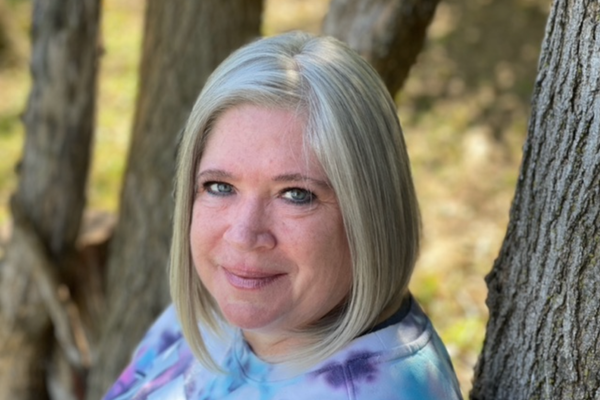I dread daylight saving time. Each year when that November weekend approaches, I brace for the return of my seasonal affective disorder (SAD), a type of depression that typically recurs each fall and lasts through the winter (a smaller percentage of people have SAD symptoms during the summer).
I am part of the estimated 0.5% to 3% of the population that has SAD, which is defined by a lack of energy, loss of interest in usual activities, poor sleep and weight gain, according to the National Institutes of Health.
Needing to find ways to manage SAD through the winter, I reached out to Rena Ferguson, M.D., a psychiatrist at the TMS Hope Center of Long Island, adjunct professor in the Department of Psychiatry at Stony Brook University and member of HealthyWomen's Women's Health Advisory Council (WHAC), and Ani Kalayjian, Ph.D, a psychotherapist and founder of Meaningful World, an NGO focusing on treating trauma, to discuss ways to treat SAD.
Here are 5 steps you can take to keep seasonal affective disorder at bay.
1. Exercise and socialize safely
Don't let the waning sunlight or cold temperatures dissuade you from getting outdoors.
"You can still go out in the winter," Ferguson said. "You don't need to stay huddled in."
Clinical trials have shown that exercise can help people who have been diagnosed with depression. Kalayjian recommends reaching out to a few friends, bundling up and going for a walk.
"This way you get the socialization, the physical movement and the ecological connection," Kalayjian said. "It's triple goodness in one outing."
Read: How to Exercise Safely Outdoors in the Winter >>
She also suggests practicing yoga, which research shows can help women who suffer from stress, anxiety and depression.
2. Light therapy for SAD

iStock.com/Rocky89
Bright light therapy, which involves using a light therapy box that mimics natural light, can be effective in treating SAD.
People who have SAD may overproduce the sleep hormone melatonin in response to the increasing hours of darkness in winter. This can cause them to feel more tired and sleep more. Light therapy can help regulate a person's circadian rhythm and improve their sleep schedule.
"You can have it turned on in the morning when you're getting dressed and ready to go to work or school," Kalayjian said. "During that 20 minutes, you enjoy that extreme bright light and feel energized."
3. Take vitamins, eat better
Sunlight helps our bodies build up vitamin D levels. In the winter when sunlight is scarce, those stores are lower. Some studies have shown a link between low vitamin D levels and depression, though researchers caution that more evidence is needed to establish a connection.
"Definitely up the vitamin D," Ferguson said, adding that this could be accomplished through a supplement taken daily or eating foods that contain vitamin D. Salmon, sardines, egg yolks, mushrooms and fortified milk are all good sources of vitamin D.
Kalayjian also recommends increasing vitamin B12 as studies have linked vitamin B12 deficiencies to depression in people are are genetically predisposed.
"It's very important to have a blood test and talk with a psychologist and nutritionist, or someone who does both," she said.
Pay attention to your diet and nutrition: Studies have shown that there is a plausible connection between diet and mental health. Specifically, studies have found a connection between the Mediterranean diet and lower rates of depression.
4. Counseling and medication
If you're unable to rouse yourself from bed during the colder months and are isolating yourself from loved ones, it could be time to talk with a mental health professional.
"[Often], it takes a long time for people to realize that there's a seasonal component to their depression," Ferguson said, adding that people may attribute it to the holidays or their children going back to school. "It's one thing to be blue, it's another thing to isolate yourself."
A therapist can help people establish when their SAD takes effect each year and come up with treatment strategies, including medication to treat depression.
"We often will manipulate their medication for the part of the year they have SAD and then we'll decrease it or change it up the rest of the year," Ferguson said.
Kalayjian also suggests joining a support group for people with SAD or depression.
"We're suffering alone and we don't need to," she said.
5. Establish a routine, seek out positivity
Both Ferguson and Kalayjian emphasized the importance of keeping to a daily routine, including sleep, exercise, hobbies and nutrition.
"You have to get disciplined about things and take it seriously," Ferguson said.
Set aside time every day to meditate and journal about the good things that are happening in your life.
"If you can't think of anything positive, start with a gratitude list," Kalayjian said. "If we keep focusing on the negative, then we will create walls around us."
Resources:
National Alliance for Mental Illness
National Suicide Prevention Lifeline
- Natural Ways to Beat Depression - HealthyWomen ›
- 10 Ways to Beat SAD - HealthyWomen ›
- The Ultimate Guide to Surviving the Winter Blues - HealthyWomen ›
- How to Avoid Seasonal Depression This Fall and Winter ... ›
- For Years, I Lived with Seasonal Affective Disorder, Thinking It Was Just the Winter Blues - HealthyWomen ›
- SAD Light Therapy - HealthyWomen ›







